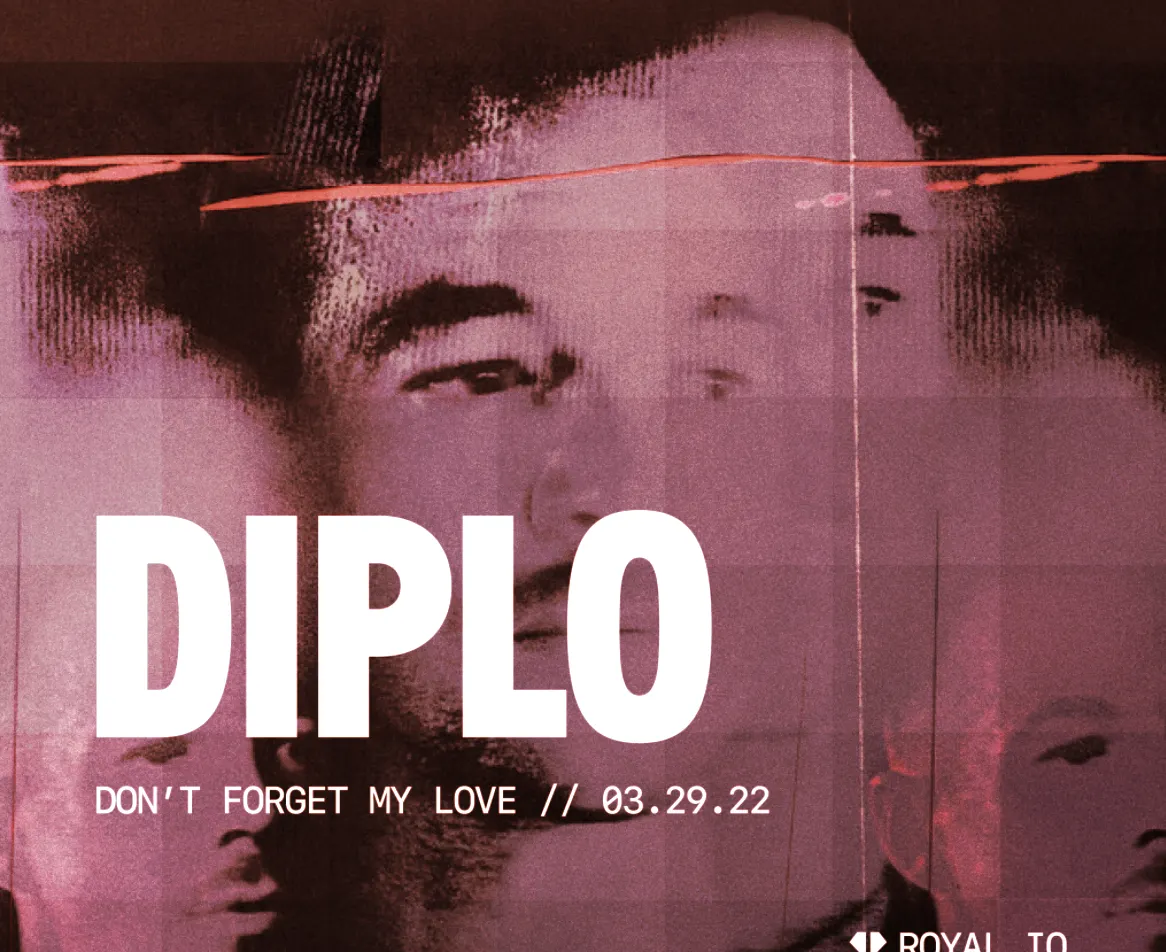In brief
- Diplo fans will be able to buy Gold, Platinum or Diamond tokens
- The tokens promise a share in future royalties and, in some cases, access to Diplo
In another sign of how blockchain is changing the music industry, three-time Grammy winner Diplo will release his single "Don't Forget My Love" next Tuesday on Royal, a site that lets artists sell tokens that give fans an ownership right in their songs.
Diplo joins hip-hop star Nas and two independent musicians who have issued tokens on Royal, which was founded by the celebrity DJ 3LAU as a way for artists to use blockchain to create new relationships to their fans and, of course, tap into crypto-based revenue streams.
In the case of Diplo, fans will be able to hear the new single on Royal but also to purchase one of three tiers of tokens that amount to ownership in the song—meaning they will be entitled to a share of future royalties and, potentially, to flip the token for a profit.
A first tier offers 2000 "Gold" tokens that will be priced at $99 and entitle the owners to receive 0.004% of streaming royalties in Diplo's song. There is also a "Platinum" tier of 100 tokens that fans can purchase for $999 in order to receive 0.05% of royalties, and a $9,999 "Diamond" tier that offers 0.7% royalties.
The respective tokens also offer various perks, including access to a collector channel on Discord for Gold token owners, and in-person meetings with Diplo for those who hold Diamond tokens.
According to 3LAU, aka Justin Blau, tokens represent a fundamental change in the economics of the music industry, which has historically short-changed artists or put them at the mercy of potentially unscrupulous middlemen.
In an interview with Decrypt, Blau said tokens also offer an unprecedented opportunity for artists to identify and connect with their fans, including by creating a shared economic artist in their work.
While the tokens issued by Royal can technically be considered NFTs, the company has taken to downplaying the term, and instead referring to the tokens as "limited digital assets."
Blau says this is partly because the traditional notions of an NFT—as a visual artifact to collect and display—doesn't work particularly well when it come to songs. While it's possible to create an NFT that points to an audio file, he adds that the complexities of music copyright are such that it's hard to assign any real rights to the NFT without creating legal tripwires.
For Blau, the real value of owning a Royal token is not as a collector's item but as a piece of actual ownership in the song the fan shares with the musician.
It remains to be seen, of course, whether those who purchase Royal tokens will see any meaningful financial returns. But Blau notes that he has already begun to make payments to fans who purchased tokens in one of his songs at a rate of $10 a month, and that he expects other artists on the platform will begin to do the same.
There is also the matter of who will keep track of the streaming royalties, which artists collect from platforms like Spotify and Apple, and pay them out to token owners. The process of keeping track of royalties has been a fraught one in the traditional music economy, with disputes frequently arising between artists and record labels over delayed or missing payments.
According to Blau, it will fall to artists to honor the token-based agreements they are signing with their fans. But he notes artists' strong relationships with their fans mean they have a strong incentive to make the payments, and adds that technology has paid tracking and paying out royalties easier than in the past.
All of this comes as Royal, which has raised over $70 million from investors who include Nas and The Chainsmokers, tries to establish itself as a flagship brand in the fast-emerging world of tokenized music. Competitors include another startup called Catalog and one called Sound that caters to undiscovered artists.
There is also the question of whether Royal is too dependent on conventional Web 2.0 streaming platforms like Spotify, and might be superseded by the Web3 music service Audius. According to Blau, such criticism is misguided as he believes that the current streaming model is hear to stay and that fans are unlikely to use crypto wallets to listen to music.
As for the new Diplo single, it will drop at 6pm on Tuesday on Royal. Those looking to buy tokens can do so by using the Polygon network on MetaMask or simply by using a credit card.

